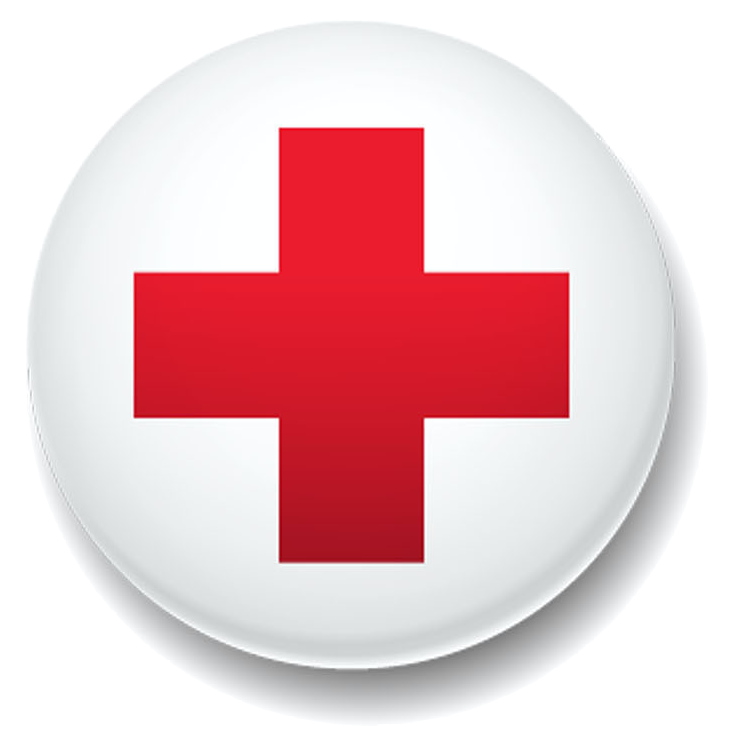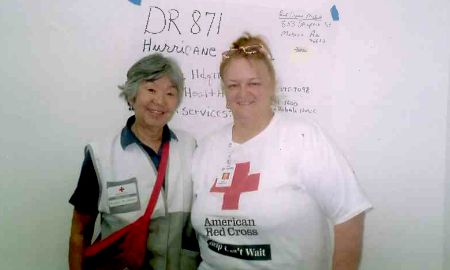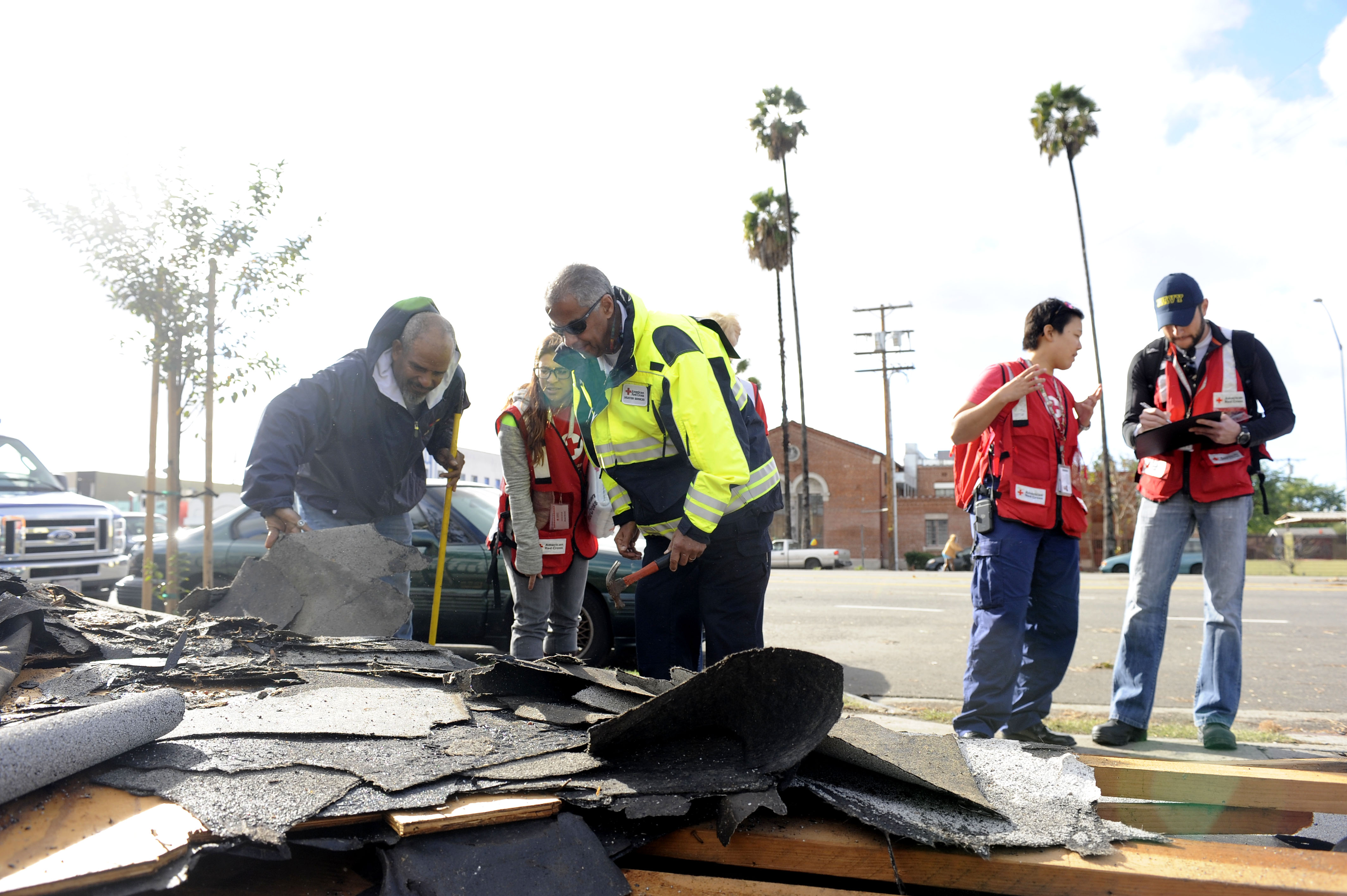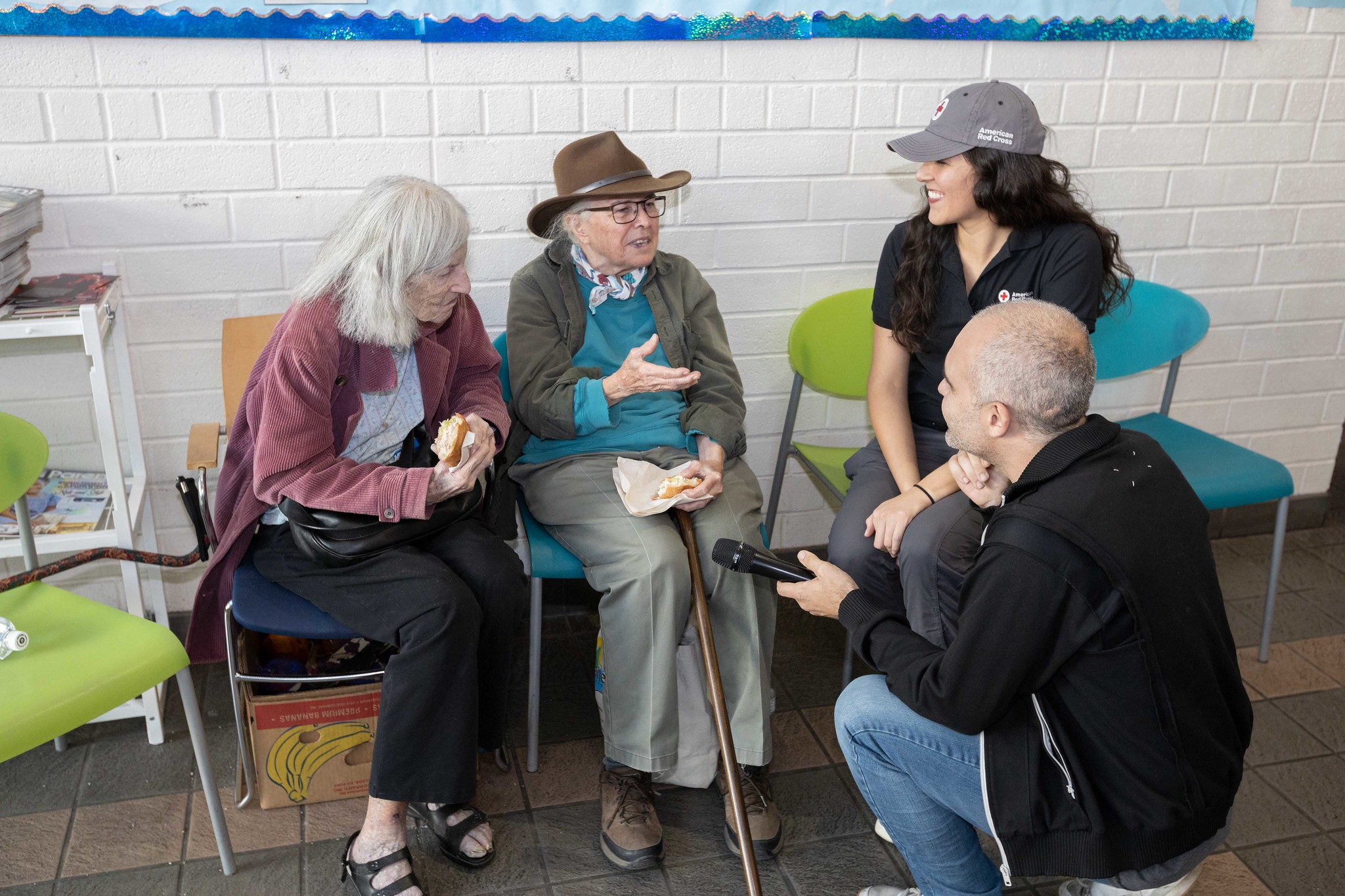By Cheri Larson, RN, Volunteer, Santa Monica Bay Chapter
On September 9, 2005, I flew to the Gulf Coast for a 2 week assignment as a member of the American Red Cross National Disaster Relief Team that was deployed to provide support to those affected by Hurricane Katrina. The hurricane left an estimated five million people without power. Homeland Security described the aftermath of Hurricane Katrina as “probably the worst catastrophe, or set of catastrophes” in the country’s history.
As a member of the American Red Cross National Disaster Relief Team, and an ER registered nurse for 30 years, I was assigned to Alabama. It was as hard hit as Mississippi and Louisiana, with an estimated 90,000 evacuees from Louisiana and Mississippi.
Everyone who came to the shelter was exhausted. MAT became my mantra” Maintain! My composure, Assess! the situation, Treat! as trained. MAT continues to echo in my mind as some of the most sensible advice I have ever received as well as to remember to “go slow & steady as that wins the race. It helped me to do a paradigm shift. Instead of looking out and seeing the overwhelmingly devastating picture, I began to deal only with the immediate needs. There were 40+ shelters across the gulf counties of Baldwin & Mobile. People came in droves to seek food, water, & medical treatment daily.
Church members from all denominations stepped forward and coordinated the community’s outpouring of support to help with food, adult & kids clothing and personal supplies, social services and much more. Cooperation among faith groups helped confirm the Churches role as advocates for survivors. The devastating Gulf hurricane whipped up an immediate outpouring of American generosity for the storms’ victims and the better side of America also came into view. A hurricane does not care if you are reach or poor, if you have a car, or relatives in high places. Everyone responded; they opened their hearts, homes and wallets to displaced families.
The placid waters of the Mississippi Sound showed no sign of the terror that had recently ripped across the gulf. Looking in any direction you could see Katrina’s calling card. Boats turned over, others pushed ashore or sitting in trees. Belongings and debris were everywhere.
The interiors of homes were flooded even though many rested high upon concrete blocks. Receding waters left inches of “muck” now partially blowing as dust in the wind as it was dried as hard as concrete encasing everything. Repeatedly I heard comments like, “all our stuff was taken by the water, we lost everything, I feel really sad.” After observing so many crying in front of piles of rubble that had once been their home, I wondered how and where, with nothing left, one starts over? It gave me a sense of appreciation for things I take for granted — hot water, food, a warm bed, TV, the Internet, etc. I gained a new respect for the strength of the people of the Gulf Coast, most of whom vowed to rebuild. No matter how bad it is for them, it was still their home.
“Our technology cannot always save us, but our neighbors just might”
At the end of the day, what we understand is that Katrina has been a horrible tragedy, but it is also an opportunity for change. The New Orleans disaster startled us into several lessons. Now we’re talking about the need for coordinated, effective disaster plans everywhere. We’re seeing the harms that follow when the ecological integrity of a place is disrupted. It invites us also to re-evaluate our own individual lives.
Katrina reminded us that the physical world still has the power to crush our computerized, digitized, cell phone talking lives. Our technology cannot always save us, but our neighbors just might!
Cheri Larson has served as a Red Cross volunteer for 50 years, 42 years as a nurse. She currently serves as both disaster mental health and physical health volunteer. In addition to assisting at national disasters like Hurricane Katrina, she has responded to every shelter opening in her hometown of Malibu since 1977 and has assited at single family fires, large wildfires and earthquakes. Cheri has helped after transportation accidents, including Metrolink crashes, the 1986 TWA airplane crash in Cerritos, the Alaska Airlines crash and at LAX after 9/11.






Hurricane Katrina was an awful disaster but you guys did great work in the years after that.